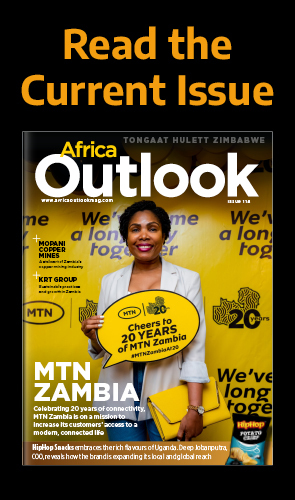Inside the story of Polmed, the dedicated closed medical scheme for South Africa’s police officers and their dependents, an organisation that has gone from strength to strength since its establishment in 2000.
PROTECTING THE PROTECTORS
“Police officers are an integral part of our society. They are the most visible representatives of the government. In our hour of need, danger, crisis, and difficulty – when citizens do not know what to do and whom to approach – police officers are there.”
The peace of mind provided by police is, all too often, taken for granted.
There to uphold the rule of law, protect life and liberty, and ensure we feel safe in our everyday lives, the enormity of the task that stands in front of police services all over the world makes it one of the most pressurised and stressful occupations.
In South Africa this is no different. The South African Police Service (SAPS) works tirelessly to protect
and serve citizens… but who or what is there to protect them in their hour of need?
The opening words are from Ms Neo Khauoe, the Principal Officer of the South African Police Service Medical Scheme, known as Polmed. Registered in 2000 as a non-profit, closed medical scheme, it provides cost-effective health insurance for those risking their lives to protect the public.
“Police officers are often called to the scene of trouble and therefore are exposed to trauma, both physical and emotional,” Khauoe explains. “They frequently deal with individuals who are antisocial, antiauthority, angry, violent, emotionally disturbed, manipulative, or under the influence of alcohol and/or drugs.
“Such events and experiences can have serious negative effects on the health and psychological wellbeing of a police officer. That is why they need tremendous support in the form of quality healthcare. We would be doing an injustice to our law enforcement officials if we do not give them adequate health cover which is central to their risk profile, given the challenges they face on a daily basis.
“We want them to focus on carrying out their duties and worry less about the adequacy and cost of their healthcare needs. That is why Polmed was established – to give our police officers the best healthcare available at an affordable cost, and to give them assurance that we will always be there for them in the time of their healthcare needs.
20 YEARS AND COUNTING
As a closed medical scheme, Polmed does not offer cover to the general public, instead provisioning for active, retired and medically boarded police personnel.
However, since inception, its scope has broadened significantly to include: spouses and partners (including multiple spouses); children of all ages with disabilities; adult child dependents studying until the age of 25; adult child dependents who are financially dependent on the member, adopted and fostered dependents; parents and parents in-law; widows and widowers; and children of fallen police officers.
This is reflected by an impressive growth in membership. Starting with 235,940 insured lives in 2000, the figure now stands at 507,764, a rise of around 56 percent which makes Polmed the fourth largest medical scheme in South Africa.
It is also refreshingly simple, with just two benefit options – Aquarium and Marine. The former offers basic cost-effective benefits and is designed for the young and healthy, with Marine offering basic and enhanced benefits for older and sickly members.
For Khauoe, a key differentiator of Polmed is its undoubted value for money versus other schemes. “Polmed remains the most cost-effective medical scheme offering higher insured benefits at lower cost,” she says.
“Polmed is more affordable, even to the Police Trainees who only receive an allowance, thereby increasing access to healthcare to the lowest income earners within the South African Police Service, and more so during their retirement when they need healthcare services the most.”
To give an indication of the value on offer, a Polmed member with two dependents on the Marine option with a basic income between R13,000 and R15,000 pays R1,505 in monthly contributions, where other comparable medical schemes will require payment of anything between R2,318 to R3,611 per month. The same Polmed member enjoys out-of-hospital benefits worth R29,537 per annum, compared to his or her counterparts who are offered anything between R7,870 and R16,652 by their respective medical schemes.
And almost all facets of healthcare are covered, including psychological support, the importance of which often flies under the radar.
“Because of the stressful nature of their jobs, police officers are prone to being victims of mental illness and other related conditions,” Khauoe continues. “Again, Polmed does not want its members to carry this burden on their own. That is why the Scheme offers them rich benefits in the form of ongoing psychological counselling and support, to help them cope and live a normal life.
“For this purpose, Polmed has established a network of highly skilled and registered psychologists and social workers to provide them with the psycho-social support they need, which includes post-trauma and periodic debriefing.
“This is in line with our vision – healthy members for a safer South Africa – which recognises and acknowledges that our police officers play a crucial role in keeping South Africa safe. However, for them to achieve a safer South Africa for those who live in it, they must be physically and mentally healthy.”
A STANDOUT SCHEME
The cost-effectiveness message is just one of three major reasons that, according to Khauoe, stand Polmed apart in the field.
Second is the fact that the scheme boasts some of the lowest non-healthcare costs in the trade. Indeed, the non-healthcare expenditure ratio has continuously declined over recent years, from 6.55 percent in 2012 to 3.57 percent in 2019. It is now among the lowest in the industry, and far below the 10 percent target prescribed by the Council for Medical Schemes (CMS).
Finally, and no less important, is the financial sustainability of Polmed. As of December 2019, reserves stand at more than 40 percent, way above the CMS standard of 25 percent, although the impact of COVID-19 is yet to be calculated.
It is therefore no surprise that Polmed is in a position to offer a comprehensive level of cover to its members, who are overwhelmingly satisfied with its offering and service (as evidenced by a 91 percent satisfaction level achieved in the 2020 independent Polmed Member Satisfaction Survey).
This is in no small part thanks to the enormous network of partners and service providers that look after its members, and Khauoe is quick to recognise how vital they are in achieving such high satisfaction ratings.
“Our healthcare providers are an integral part of Polmed’s service delivery mechanisms,” the Principal Officer says. “They are the vehicle through which we deliver services to our members, they are the ones who interact with our members on a daily basis when they need healthcare services.
“They examine, diagnose, treat, educate them on various healthcare matters and provide continual healthcare for those with chronic conditions to improve their quality of life. As such, they are an indispensable element of our value chain, and part of our core business.”
Crucially, costs are fixed for Polmed members, who do not incur unexpected charges when they visit a medical professional, particularly those who are on Polmed Provider Network.
A careful selection process ensures that only the best partners are selected, be they general practitioners, hospitals, pharmacies, renal dialysis specialists, oncology centres, optical experts, psychologists or emergency medical service providers, all of which make up the Polmed network or designated service providers.
COMBATTING COVID-19
The network has also been responsive to the challenges presented by the coronavirus pandemic.
Indeed, management of these complexities is Polmed’s most significant ongoing project, with several endeavours helping to ensure its members are provided the protection they need.
For instance, the scheme has partnered with Gift for Givers and Wellness Odyssey (Polmed’s wellness service provider) to ensure all members are screened frequently, with high-risk individuals being sent for testing. All screening and testing procedures are covered.
Polmed is also part of the SAPS COVID-19 Steering Committee, a body which meets weekly to assess the coronavirus impact on police officers and devise strategies to help curb the spread of the illness. Further, the Scheme is also working with its network of providers to enable Polmed members to be placed in quarantine and isolation facilities if they cannot self-isolate at home. Again, these services are fully covered.
“Our police officers have been at the forefront of the battle against COVID-19 since the outbreak was announced, thereby facing the daily risks of being infected,” Khauoe says.
“Unfortunately, some of them have contracted the virus and, sadly, some have passed away in the process. These are the realities of COVID-19 and its devastating effects on communities across the world. However, our fatality rate is much lower than all benchmarks at 0.9 percent of the insured lives who tested posited to COVID-19.”
The other key component of the Polmed response has been to educate its members.
Khauoe continues: “The most basic thing to do during a pandemic like this one is to provide accurate information to avoid reliance on fake news and misinformation designed to instil fear, confusion, and anxiety.
“Polmed has been running a robust educational campaign to sensitise SAPS members about COVID-19. Since early March 2020, we have consistently updated members via various media platforms, educating them about COVID-19, and updating them on their available benefits should they contract the virus.
“We are continuously engaging with all the relevant stakeholders, including SAPS management and our healthcare providers to see how best we can assist SAPS members and their dependents during this pandemic, so that they can continue rendering the essential service that the country needs.”
“We have since opened several isolation and quarantine sites across all provinces, specific for Polmed beneficiaries.”
A COORDINATED FUTURE
The Principal Officer is also all too aware that the industry is not going to be the same as it was before coronavirus arrived.
Indeed, the pandemic has heightened the urgency for South Africa to strengthen its healthcare system in both public and private spheres, so that it is prepared should another disease outbreak arise.
“As a nation, we also have to look at the World Health Organization’s definition of health as ‘a state of complete physical, mental, and social wellbeing and not merely the absence of disease or infirmity,” she adds.
“This will require us to look at health comprehensively, not just as provision of care. The discussion will begin to look at things like access to water, food, shelter, primary healthcare and ensure that there is a comprehensive programme of action that addresses all the elements that contribute to the wellbeing of South Africans.”
But what of Polmed specifically? How will the Scheme continue to evolve and deliver greater levels of cover to its deserving members?
The priority, at least in the near-term, is what Khauoe refers to as care coordination. Stated simply, the idea is to avoid duplication of services and value leakage by organising patient care more effectively throughout the network, a process which involves synchronising the delivery of a member’s treatment from multiple providers and specialists.
Central to these efforts will be the near 4,000 GPs in the Polmed network.
“We need to establish strong partnerships with general practitioners, who are often the first point of entry for our members into the healthcare system,” says Khauoe. “We want them to play a central role in providing our members with comprehensive, cost effective and quality primary healthcare services.
“Polmed is therefore embarking on a project to ensure that all our members have their own dedicated general practitioner, or family doctor, instead of consulting various providers, sometimes for the same clinical condition.
“We want to achieve a dispensation where GPs are responsible for coordinating our members’ overall healthcare needs, such as early prevention of diseases by doing preventative screening annually, proper management of chronic diseases to eliminate unnecessary hospital admissions, referral for pathology testing and specialised care.”
Coordinated care is particularly important given the growing number of patients who live with chronic conditions.
A single point of contact disseminating consistent and reliable information is critical to effective management of such illnesses, and Polmed is determined to revolve its services around the focal point of GPs, who in turn will refer members to the appropriate specialists across the network.
And it is this network that will need to grow if Polmed is to continue delivering first-class cover, bringing healthcare delivery as close as possible to Polmed members.
Khauoe reflects this in her concluding remarks as the conversation draws to a close: “Our duty is to ensure that our networks continue to grow and improve,” she says.
“This means growth not only in terms of our reach and accessibility to members, but also in terms of the quality of healthcare services offered, as evidenced by improvement of our members’ overall health and wellbeing.”

































